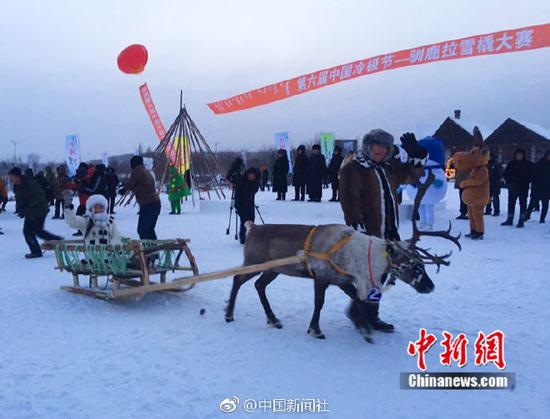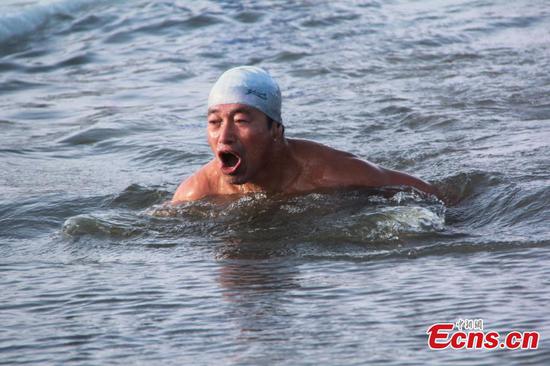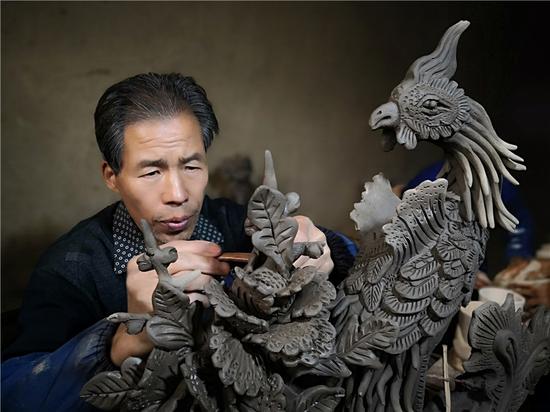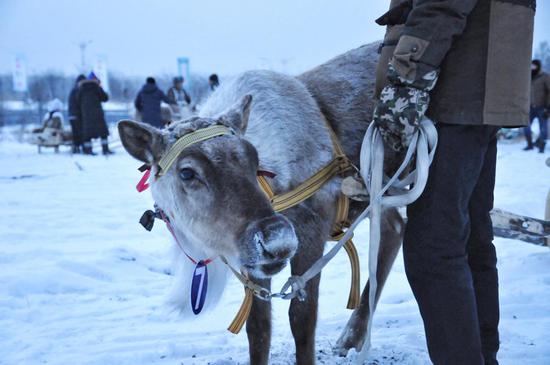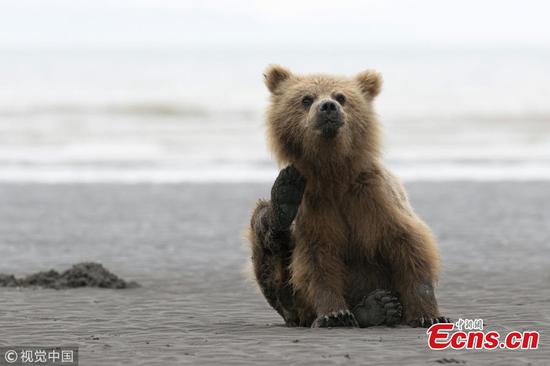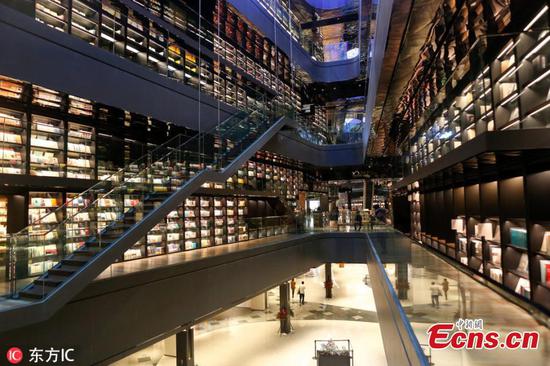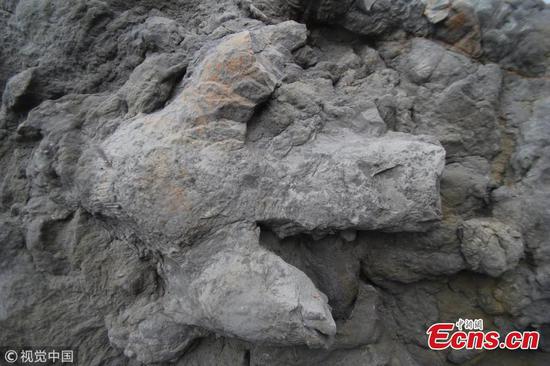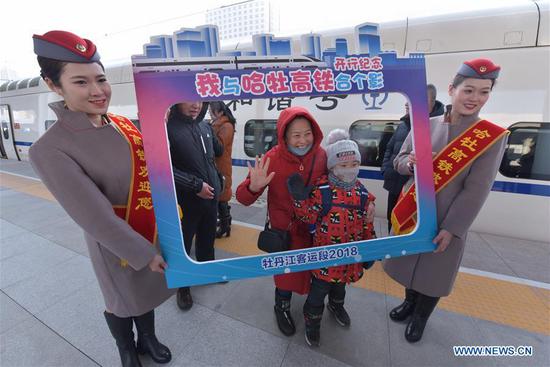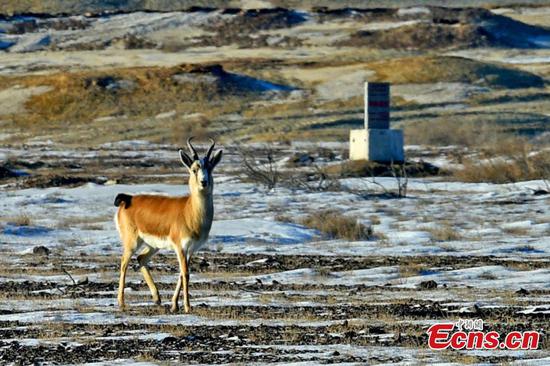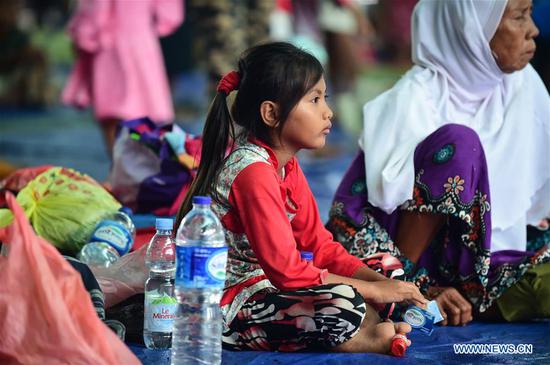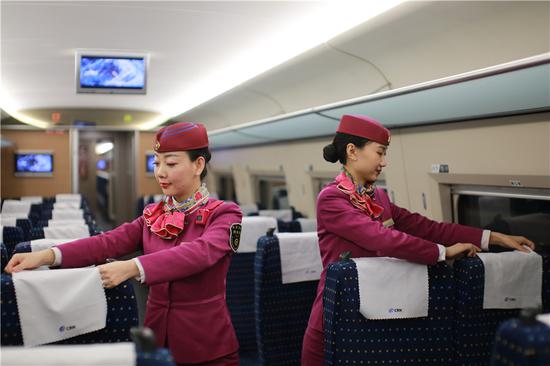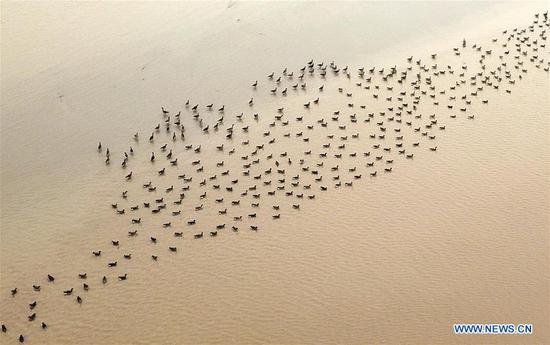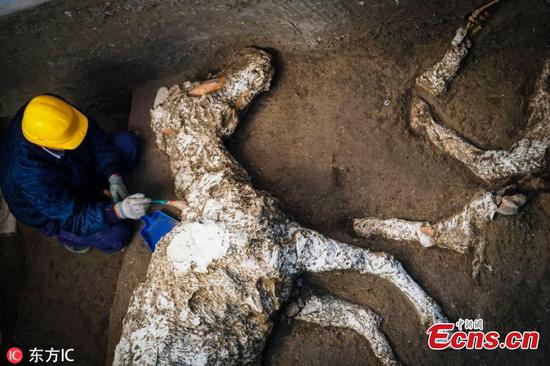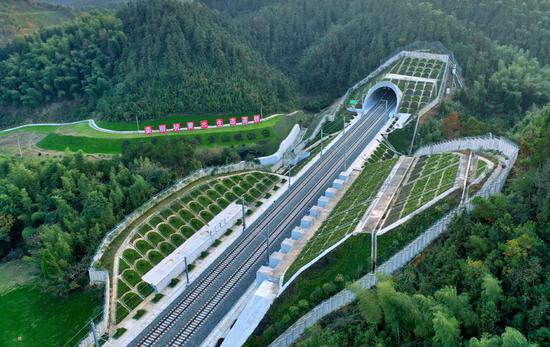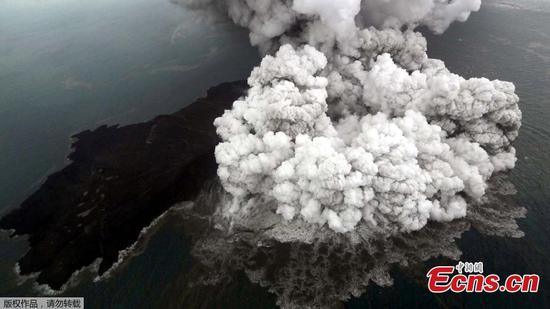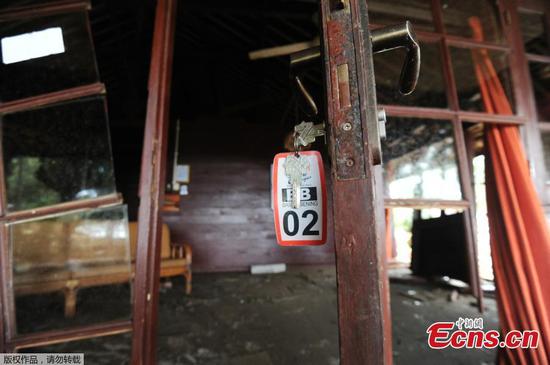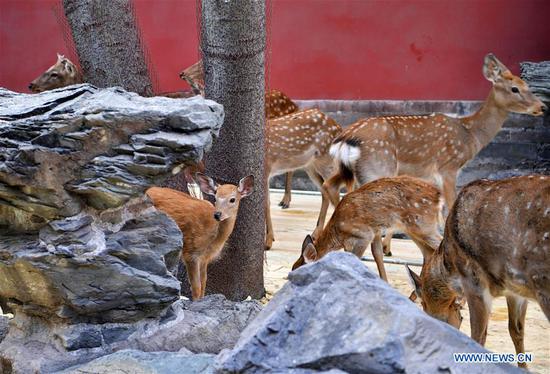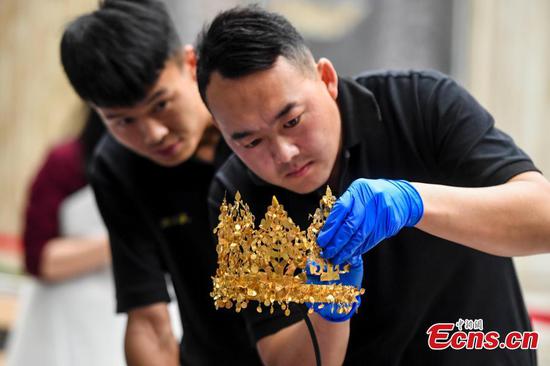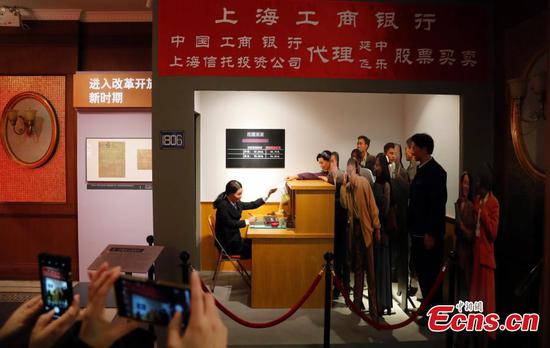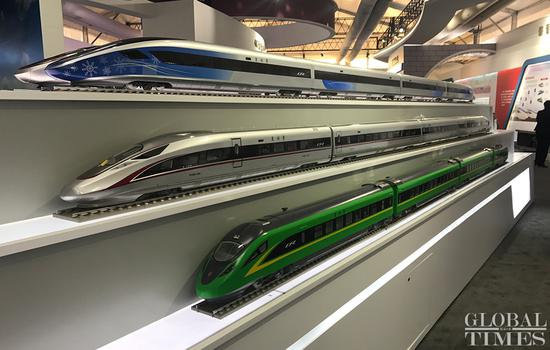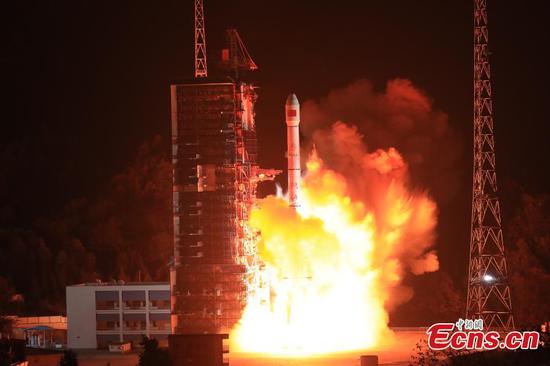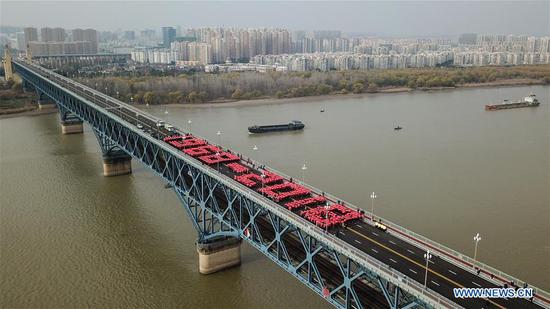Xi vows greater efforts to increase imports
Chilean businessman Gonzalo Matamala said he anticipates sales of his fresh fruit will double next year. He credits China's increasing efforts to open its markets, as promised by President Xi Jinping.
"We strongly believe that China will be more and more open," said Matamala, general manager of the China division of Gesex, a Chilean fruit exporter founded in 1998. The company has sold more than 4 million yuan ($580,000) of fresh fruit to China this year.
The 38-year-old has found that doing business in China has become easier, especially after November 2017, when the two countries upgraded a free-trade agreement in which they agreed to facilitate trade and open markets wider.
"Now the rules are equal for all companies, no matter local or foreign, and clearer," Matamala said. "This has helped a lot with our business in China."
He has reason to be optimistic, as this year Xi has pledged many times to further boost opening-up and has proposed building an open global economy.
"China's door of opening-up will not be closed and will only open even wider," Xi said at the opening ceremony of the annual Boao Forum for Asia in Hainan province in April.
Xi reaffirmed this commitment in speeches delivered at all four international events hosted by China this year. They were the Boao Forum for Asia; the Shanghai Cooperation Organization Summit in Qingdao, Shandong province; the Forum on China-Africa Cooperation Beijing Summit; and the China International Import Expo in Shanghai.
During his four overseas trips to 13 countries this year, Xi also called for joint efforts with other nations to maintain free trade, promote facilitation of trade and investment, and oppose protectionism.
In his meeting with US President Donald Trump in Argentina on the sidelines of the G20 Summit on Dec 1, Xi said China would open its market and expand imports based on its new round of reform and opening-up and the demands of the domestic market.
Protectionism and unilateralism can only add uncertainties to the global economy, but openness and cooperation can bring more opportunities for development, Xi said at the Asia-Pacific Economic Cooperation CEO summit held in Papua New Guinea last month.
Ruan Zongze, executive vice-president and senior fellow at the China Institute of International Studies, said Xi in his speeches and meetings with foreign leaders this year has sent a clear signal of boosting opening-up.
Noting that trade protectionism and unilateralism may rise next year, Ruan said China should take measures to deal with such challenges.
"We should enhance communication with other countries to demonstrate that China's development is not a threat, but an opportunity," he said.
Ruan said the best way to mark China's achievements from four decades of reform and opening-up should be by looking to the future.
"This means further reform and opening-up should be carried out next year, and the same should be applied to Chinese diplomacy," he said.
Key word of the year
According to State Councilor and Foreign Minister Wang Yi, in facing the rise of protectionism and unilateralism China has firmly supported economic globalization and safeguarded free trade.
The country has placed great emphasis this year on further expanding opening-up on the basis of deepening reform, Wang said at a seminar on China's diplomacy held early this month.
According to Wang, opening-up ranks top among the keywords for China's diplomacy this year, along with cooperation, steady progress, lead, responsibility and steadfastness.
"From hosting multilateral events to attending international conferences, in 2018 China conveyed a clear, consistent message of its commitment to wider opening-up by outlining new policies and concrete measures," Wang said.
In Xi's keynote speech at the Boao Forum for Asia, he introduced powerful measures, including easing market access and facilitating trade and investment, to open the world's second-largest economy wider.
"This year, we will significantly lower the import tariffs for automobiles and reduce import tariffs for some other products. We will import more products that are competitive and needed by our people," Xi said.
This year marks the 40th anniversary of reform and opening-up. Over the past four decades, the country has recorded an average annual GDP growth rate of about 9.5 percent and lifted more than 700 million people out of poverty.
In his speech at the Shanghai Cooperation Organization summit in June, Xi called for joint efforts to build an open world economy and to reject "self-centered, shortsighted and closed-door policies".
In September, China hosted the Beijing Summit of the Forum on China-Africa Cooperation, which set a record for these gatherings with the attendance of 40 presidents, 10 prime ministers, one vice-president and the chairman of the African Union Commission.
At the summit, China and African countries introduced more than 100 cooperation measures as part of eight major initiatives in areas such as industrial promotion and infrastructure connectivity.
"China will not stop its effort to pursue higher-quality opening-up. China will not stop its effort to pursue an open world economy," Xi said at the China International Import Expo last month, the world's first national-level expo devoted to imports.
On Dec 18, China hosted a grand gathering in Beijing to mark the 40th anniversary of reform and opening-up. "The practice of reform and opening-up over the past 40 years has shown that openness brings progress, while seclusion leads to backwardness," Xi said at the event.
International acclaim
China's strong opening-up measures and its efforts to build an open global economy have brought real benefits for other countries and injected impetus into the world economy, according to political and business leaders from other countries.
Niels B. Christiansen, CEO of the Lego Group, said he was encouraged by Xi's commitment made at the China International Import Expo to "creating a world-class business environment where the legal rights of multinational companies operating here are protected".
"We welcome President Xi Jinping's speech, especially his clear message that China will further its opening-up and reform efforts," he said, adding that his company will continue to trade in the country.
The six-day CIIE, attended by more than 3,600 overseas companies from 172 countries and regions along with international organizations and 400,000 buyers from home and abroad, concluded with deals worth nearly $60 billion being sealed.
Petre Roman, a former prime minister of Romania who met with Xi in November last year and again this month, said he was impressed by the president's commitment to deepening reform and opening-up.
"President Xi is leading China in a continuously more open direction," he said, adding that an increasingly open China has "changed the perception of the country among people from different nations".
Ine Eriksen Soreide, the Norwegian foreign minister, spoke highly of the China-proposed Belt and Road Initiative, saying it has significant potential benefits for developing countries.
"I am certain that continued opening up of China will be positive for both China and the rest of the world," she said, adding that the BRI could bring opportunities for private companies in Norway.
According to the Ministry of Foreign Affairs, trade between China and BRI partner nations has exceeded $6 trillion, and more than $80 billion of investment from China in those countries has created 240,000 local jobs.
Ugandan President Yoweri Muse-veni said he has been closely following China's changes since 1978 when the reform and opening-up policy was launched.
"Infrastructure is a good example that Africa can learn from China's opening-up," he said, voicing his agreement with an old Chinese saying, "if you want to get rich, first build roads".
Matamala, the Chilean businessman, hopes his company can increase sales and set up more offices in cities such as Beijing and Shenyang, Liaoning province, as well as existing ones in Shanghai and Guangzhou.
"I'm looking forward to meeting more foreign companies doing business here in China," he said.









